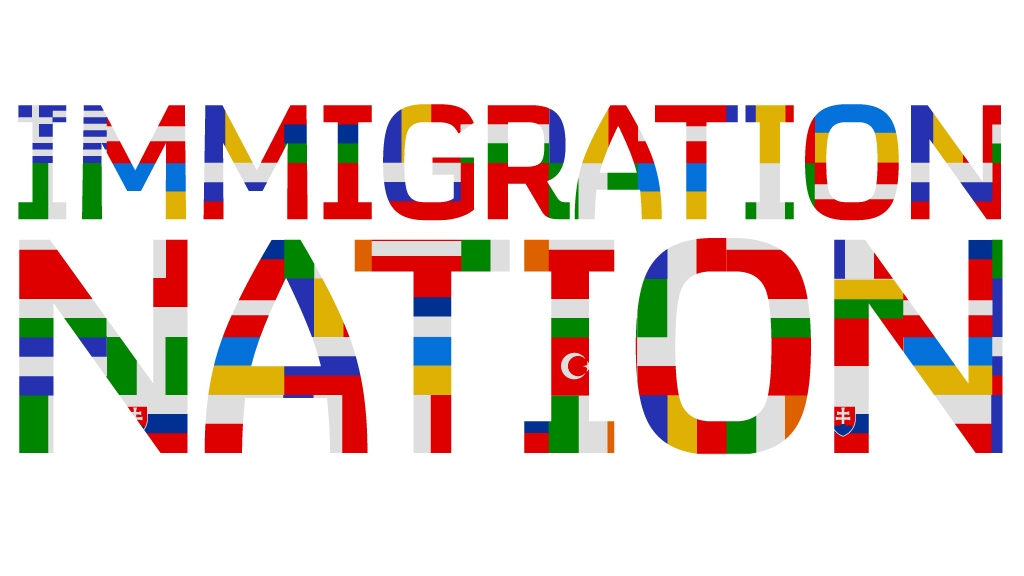Immigration Nation: how tolerant is modern Britain?
 Andy Davies
Home Affairs Correspondent
Andy Davies
Home Affairs Correspondent
The political sabre-rattling, rarely subdued, has been particularly shrill of late. Andy Davies introduces our series on how Britain is responding to the challenge of immigration.

Accused once of being too scared to discuss the topic, now politicians can’t seem to shut up about immigration.
In recent months we’ve seen party leader after party leader grab the headlines, adopting a now familiar-looking “benign belligerent” role on the issue. The message, crudely, goes something like this: we like immigrants (as the speeches usually always start), but woe betide anyone who takes the p***. Or as David Cameron recently put it: “While I have always believed in the benefits of immigration… ending the something for nothing culture needs to apply to immigration as well as welfare”.
Recently the Labour leader Ed Miliband devoted an entire party political broadcast to immigration, a first for his party. While Nick Clegg weighed in with his Liberal Democrat version: “Tolerant Britain, zero-tolerant of abuse”. For critics, this is the stuff of “dog-whistle” politics, triggered, they say, by sheer panic at the rise of the UK Independence Party. The main political parties merely call it a more mature and honest debate.
Farage in Bulgaria
So why now? Ukip’s strong showing in the recent Eastleigh by-election has certainly been a potent driver in all of this. The relaxation, due to take place next year, in transitional controls regarding Bulgarians and Romanians‘ right to work in the UK, is also adding spice.
You only have to take a look, for instance, at a recently distributed Ukip county council election leaflet to see what tone they’ll be adopting: “Massive threat to our local services” reads the headline, while underneath it continues: “Within a year, 29 million Romanians and Bulgarians will gain the right to live, work and draw benefits here.”
Ukip’s strong showing in the recent Eastleigh by-election has certainly been a potent driver in the immigration debate.
When Ukip leader Nigel Farage appeared on TV recently he said: “If I was a Bulgarian, I’d be packing my bags.” In the first of a series of special reports to mark Channel 4 News’s Immigration Nation week, Foreign Affairs Correspondent Jonathan Rugman tests out that hypothesis by travelling to Bulgaria. And he takes Nigel Farage along with him. Together they explore what appetite there really is among Bulgarians to seek a new life in the UK.
The film includes colourful romp through a Bulgarian gypsy ghetto – where love of motherland seems to outweigh any thirst for the UK’s largesse – to a sad orphanage where a young mother says life in the EU’s poorest country is so dire that Britain is a much better bet.
Nigel Farage’s conclusion? He doesn’t have a clue how many Bulgarians will come, but come some will, so it is time to leave the EU so that Britain can impose its own border controls.
Intensive migration
In Southampton, Home Affairs Correspondent Andy Davies has been looking at a city which has undergone dramatic changes since the EU enlargement of 2004. The opening of the UK’s labour market to nationals of accession eight (A8) countries resulted, argues Southampton University’s Professor Derek McGhee, in “one of the largest and most intensive migration flows in contemporary European history”.
Poles now constitute the single largest foreign national group resident in the UK and have established a notable presence in Southampton. According to the 2001 census 89 per cent of the population of Southampton were white British. This had fallen to 78 per cent by the time of the 2011 census. There are now approximately 1,000 more babies being born a year in the city compared with a decade ago.
There are now approximately 1,000 more babies being born a year in Southampton compared with a decade ago.
So how can a city like Southampton, in an age of austerity, deliver on public services when faced with having to teach more people, house more people, and care for more people? Or is the city actually thriving with such a new, young and diverse workforce? We hear from some local residents who feel the situation is out of control, and we visit a primary school where, among the pupils, 49 languages are now spoken.
Finally, Jamal Osman hears powerful and moving accounts from three families who have sought a new life in Britain: Marek’s family from Poland, who feel they have worked hard to integrate into British society; the family of Minine from the Philippines, who, as a nurse, represents an immigrant workforce central to the functioning of the NHS; and Amal’s family, who came to Britain from Somalia seeking asylum when she was just a year old. While she finds life easy, she knows her mum struggled to settle.
Immigration Nation. Channel 4 News this week.